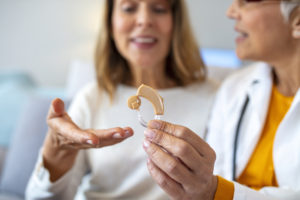
It’s not uncommon to struggle with the sense of sound. Sounds become muffled, you need more volume, or you could even experience ringing or other unprovoked noises. Sometimes there is nothing you can do about it—it’s aging.
But there are some factors you can control. Paying attention to them could keep you experiencing your most sacred sounds longer and more clearly.
One of the most important is avoiding loud noises. If you live on a noisy street, get thick windows that dull the sound. Use industrial earmuffs when cutting the grass, blowing leaves, or other work with loud machinery. Noise pollution is a major contributor to hearing impairment.
These sounds might not bother you. They might not even seem particularly loud. But the frequency they produce can lead to eardrum damage that can be avoided with proper precautions.
Another major threat to hearing is listening to music/television at loud volumes. This is particularly true when using headphones or earbuds. If you have the budget, investing in noise-canceling headphones is a good idea. These devices prevent the need to turn up the volume to block unwanted sound.
It’s also recommended to keep volume level reasonable—no more than 60% maximum volume. If you can hear your music when the phone is being held away at arm’s length, it’s too loud. Also, take a five-minute break for every hour you wear headphones.
Once public spaces like theatres, sporting venues, and clubs re-open, consider wearing earplugs to dull the sound. These venues are extremely loud and can lead to accelerated ear damage.
Protecting your ears isn’t always easy or guaranteed, but you can reduce your risk for severe damage by limiting exposure to loud noises.